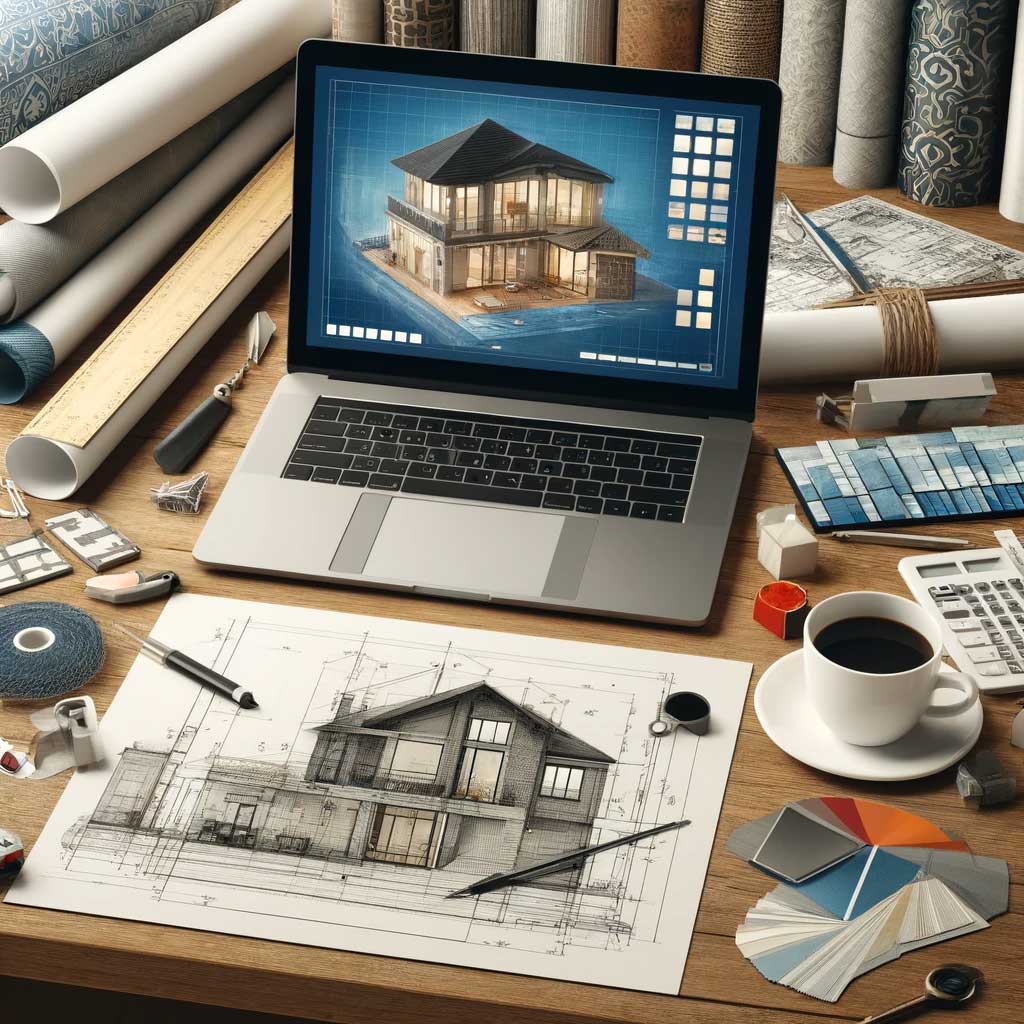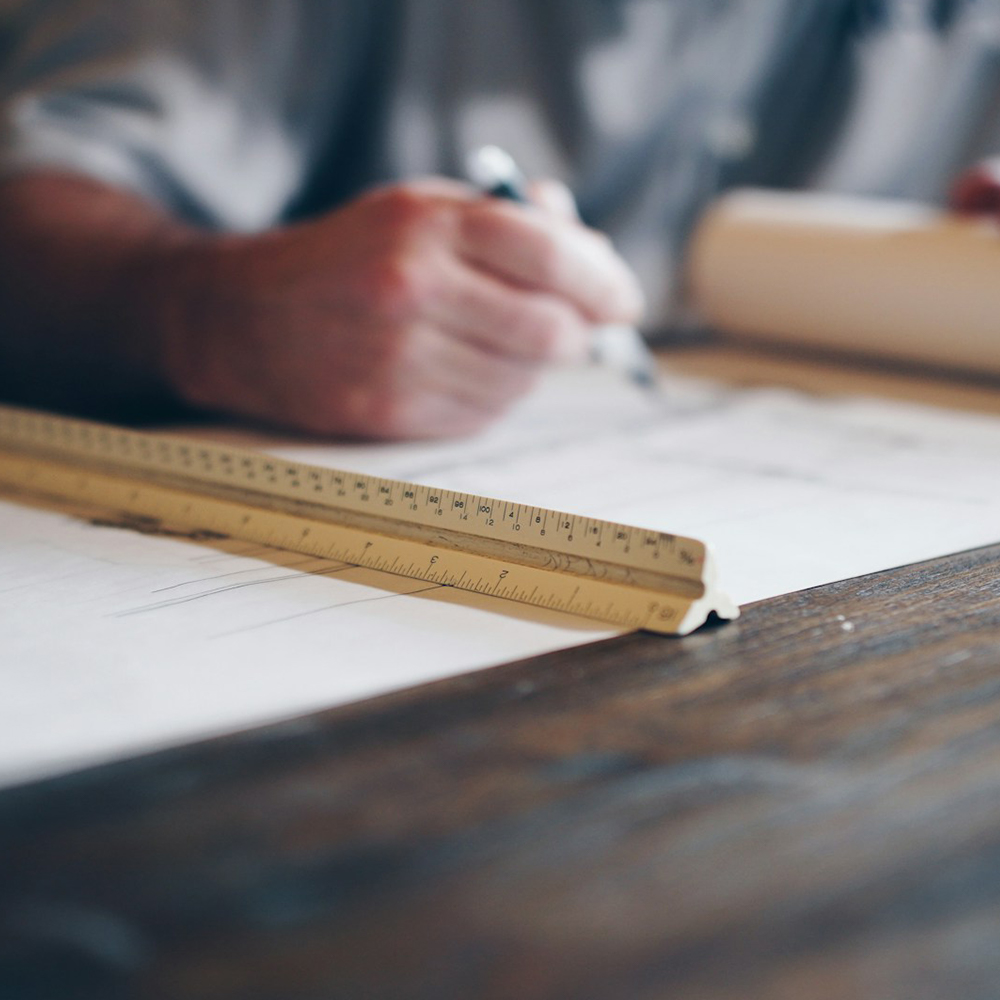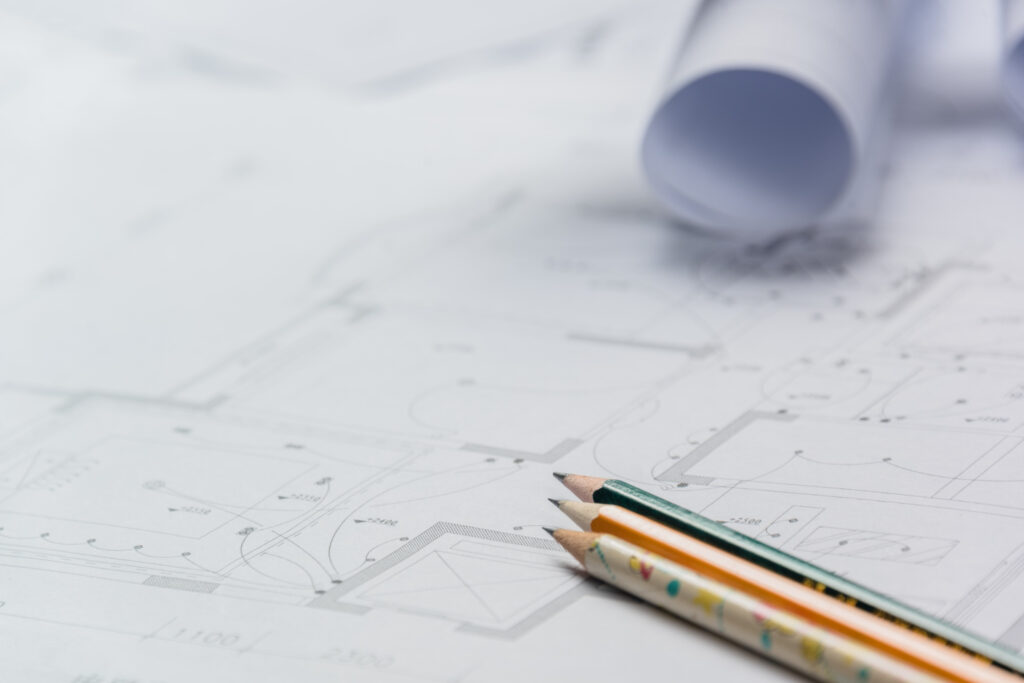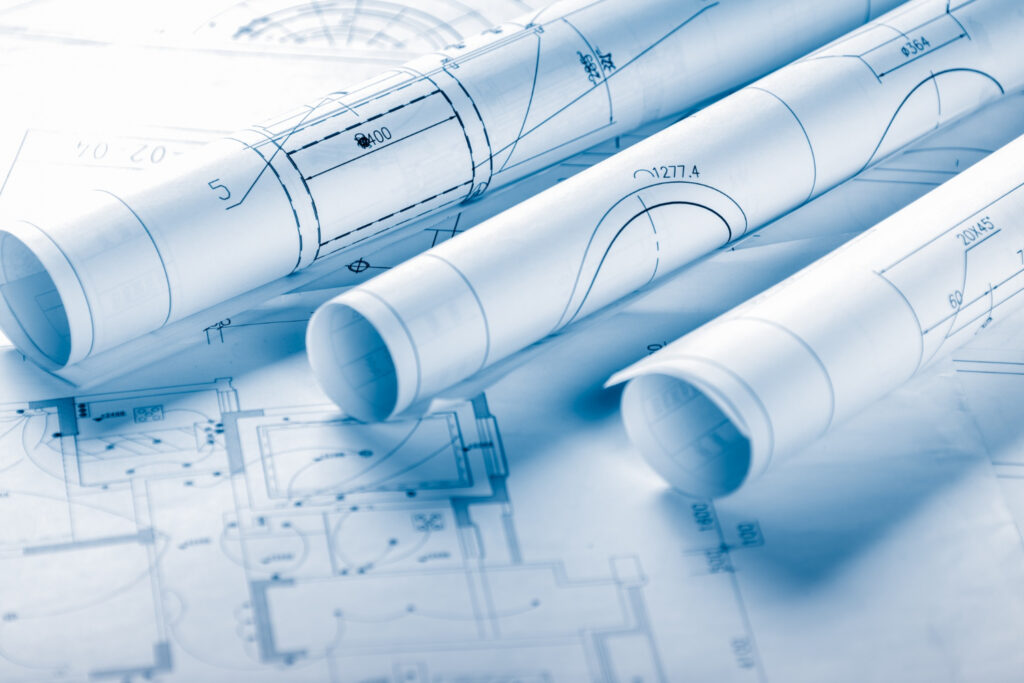What to Ask Your Custom Home Designer
Designing a custom home is an exciting journey that allows homeowners to bring their unique vision to life. However, the process can also be complex and overwhelming, requiring careful planning and collaboration with the right design professionals.
Asking the right questions and thoroughly vetting potential designers are crucial to ensuring a successful outcome. This comprehensive guide outlines the essential questions to consider when choosing a custom home designer, helping you navigate the process with confidence and clarity.
Whether you’re embarking on a new build or a remodel, these insights will set the foundation for a smooth and satisfying experience.
Experience and Portfolio
Understanding the designer’s experience and portfolio is paramount when designing a custom home. This not only gives you insight into their expertise but also provides a glimpse into the quality and style of their work.
How many years of experience do they have in custom home design and remodeling?
Experience is a crucial indicator of a designer’s capability. A seasoned designer with years of experience is likely to have honed their skills and can easily navigate complex projects.
Can they provide examples of custom homes and remodel projects they’ve completed?
Reviewing past projects helps you gauge the designer’s style and versatility. It’s essential to see various projects to ensure they can adapt to different tastes and requirements.
Do they have a portfolio showcasing their work?
A comprehensive portfolio is a testament to a designer’s creativity and technical skills. It also serves as a source of inspiration for your project, showcasing possibilities you might not have considered.
Choosing a designer with a strong portfolio and substantial experience ensures that your custom home will be crafted with expertise and attention to detail. This foundational step sets the stage for a successful and satisfying design process.
Design Process
Understanding the design process is essential for a smooth collaboration with your custom home designer. A well-defined process helps set clear expectations and timelines, making the journey more manageable and enjoyable.
What is their approach to the custom home design and remodeling process?
Different designers have varying approaches, from conceptual stages to detailed planning. Knowing their methodology helps you understand how your vision will be brought to life and ensures their style aligns with your expectations.
How do they incorporate client input and feedback into their designs?
A collaborative approach is critical to achieving a design that truly reflects your desires. Knowing how the designer will involve you in the process and how your feedback will be integrated at each stage is essential.
What are the typical stages and timelines for a custom home or remodel project?
Having a clear path/milestones and understanding the stages involved helps manage expectations and keeps the project on track. This includes everything from initial consultations and concept development to final approvals and construction oversight.
By gaining insight into the designer’s process, you can ensure a seamless experience from concept to completion, paving the way for a custom home that meets your vision and needs.
Customization and Personalization
One of the main benefits of designing a custom home is the ability to tailor it to your specific tastes and needs. Understanding how a designer handles customization and personalization is crucial to achieving a home that reflects your vision.
How do they ensure the home design reflects personal style and preferences?
It’s essential to know the designer’s strategies to capture your style. This could involve detailed consultations, design questionnaires, or mood boards to ensure your preferences are accurately represented.
Are there limitations on the level of customization for custom homes and remodels?
While many designers offer extensive customization, it’s essential to understand any constraints that may exist. These could be related to structural elements, budget considerations, or local building regulations.
How do they handle unique or unconventional design requests?
If you have specific or unconventional ideas, it’s important to know how the designer responds to such requests. This can include their flexibility in incorporating unique features and their problem-solving approach to non-standard designs.
Choosing a designer who excels in personalization ensures that your custom home will meet functional requirements and embody your style and preferences, uniquely creating your space.
Budget and Costs
Managing the budget and understanding costs are critical aspects of any custom home project. Clear communication about fees and potential expenses ensures there are no surprises later on.
What are their fees, and what do they include?
It’s essential to have a detailed breakdown of the designer’s fees. This includes knowing what services are covered, such as initial consultations, design development, and project management.
Can they work within specific budget constraints?
Discussing your budget upfront helps determine if the designer can accommodate your financial limits. Experienced designers will provide realistic options and solutions to stay within budget while meeting your design goals.
Are there additional costs to be aware of during the design and remodeling process?
Understanding potential additional costs, such as permit fees, materials, and unexpected changes, helps in comprehensive financial planning. Clarifying these aspects is important to avoid unforeseen expenses.
A transparent discussion about budget and costs with your designer ensures a smooth financial journey and helps make informed decisions throughout the project.
Sustainability and Green Building
With growing awareness of environmental impact, incorporating sustainability into your custom home design is more critical than ever. Knowing how a designer approaches green building can help you make eco-friendly choices.
Do they specialize in sustainable or green building designs?
Understanding the designer’s expertise in sustainable practices ensures that your home will be built using eco-friendly principles, reducing your environmental footprint.
What eco-friendly materials and technologies do they recommend?
Researching recommended sustainable materials and technologies helps you incorporate energy-efficient and environmentally friendly options into your home design.
How do they ensure energy efficiency in their designs?
Energy efficiency is a critical component of sustainable design. Learning about the designer’s strategies for maximizing energy efficiency, such as insulation, window placement, and renewable energy sources, can significantly impact your home’s long-term sustainability.
Focusing on sustainability and green building can help you create a home that not only meets your needs but also contributes positively to the environment.
Project Management, Coordination, and Client Advocacy
Effective project management and coordination ensure your custom home design project runs smoothly. Understanding how a designer handles these aspects can significantly impact the success of your project.
Do they offer project management services to oversee the construction and remodeling process?
Knowing whether the designer provides project management services helps you understand who will oversee the day-to-day progress and ensure everything stays on track.
How do they coordinate with contractors and builders?
Precise coordination between the designer and construction teams is crucial for seamless execution. Understanding their methods and communication channels is essential for managing this relationship.
What measures do they take to ensure the project stays on schedule?
Timely completion is a critical factor in any project. Inquiring about the designer’s strategies for managing timelines, addressing delays, and keeping the project on track ensures you are prepared for any eventualities.
How do they advocate for clients throughout the project?
Client advocacy is essential to protecting your interests and ensuring your vision is realized. It is crucial to understand how the designer will represent your needs and preferences, handle conflicts, and ensure quality control.
Choosing a designer with strong project management and coordination skills and a commitment to client advocacy ensures a smooth, efficient building process, minimizing stress and potential delays.
Communication and Collaboration
Clear and consistent communication is essential for a successful custom home design project. Understanding how a designer facilitates communication and collaboration can ensure a smoother and more enjoyable process.
How often will they meet or communicate during the design and remodel process?
Regular updates and meetings are crucial to stay informed about the project’s progress. Understanding the frequency and mode of communication helps set expectations.
What tools or platforms do they use for communication and collaboration?
Knowing the tools and platforms the designer uses can help streamline the exchange of ideas, plans, and updates. This might include project management software, email, or in-person meetings.
How do they handle any changes or revisions to the design?
Flexibility and responsiveness are key when changes or revisions are needed. Understanding the decision-making process ensures that your evolving vision can be seamlessly incorporated.
By ensuring effective communication and collaboration, you can actively participate in the design process and ensure that the final result aligns with your vision and expectations.
Legal and Compliance
Ensuring your custom home design complies with legal standards and regulations is crucial. Understanding how a designer handles these aspects can prevent potential legal issues and ensure a smooth project.
How do they ensure the design complies with local building codes and regulations?
Compliance with local building codes is essential for the legality and safety of your home. It is important to know how the designer stays updated and ensures adherence to these regulations.
Do they handle the permitting process, or is that the client’s responsibility?
Clarifying who is responsible for obtaining necessary permits helps avoid delays and legal complications. Some designers handle this process entirely, while others may require client involvement.
Timeline and Availability
Understanding your custom home designer’s timeline and availability is crucial for planning and managing expectations. Clear communication about these aspects helps ensure a smooth project from start to finish.
What is their availability to start on a new project?
Knowing when the designer can begin your project is essential for scheduling and planning. It helps align your expectations with their current workload and commitments.
How long does the design and remodeling process typically take from start to finish?
Understanding the typical duration of the entire process, from initial consultations to the final build, helps you plan accordingly and manage expectations.
Are there any factors that could delay the project?
Discussing potential delays, such as material shortages, weather conditions, or permit issues, helps you prepare for contingencies and ensures realistic timelines.
By clearly understanding the timeline and the designer’s availability, you can better plan your project and anticipate any potential challenges, ensuring a smoother process overall.
Client References
Hearing from past clients provides valuable insights into the designer’s work and client satisfaction. Checking references and testimonials can give you confidence in your choice.
Are there any reviews or testimonials available for their services?
Online reviews and testimonials provide a broader view of the designer’s reputation and the satisfaction level of their clients.
Can prospective clients visit any completed projects to see their work firsthand?
Visiting completed projects lets you see the quality and craftsmanship up close, providing a tangible sense of what to expect.
By reviewing client references and testimonials, you can better understand the designer’s capabilities and ensure they are the right fit for your project.
In Summary
Choosing the right custom home designer involves careful consideration and asking the right questions. You can make an informed decision by understanding their experience, design process, customization options, budget management, sustainability practices, project management, communication strategies, legal compliance, timeline, and client references.
If you’re ready to start your custom home journey, contact Orchard Home Design to discuss your vision and how we can help bring it to life. Our team is dedicated to creating beautiful, personalized homes that meet your unique needs. Reach out today to schedule a consultation.






